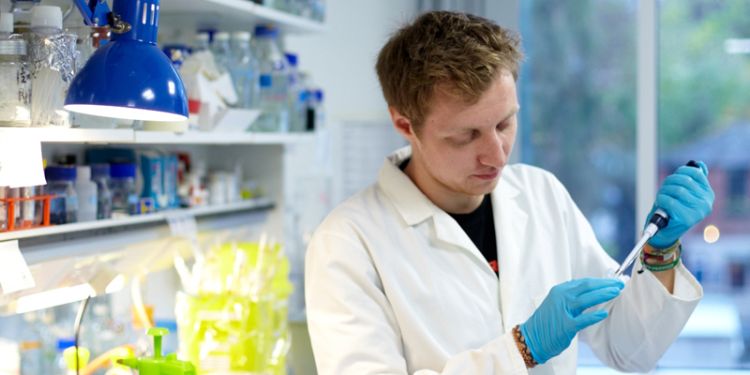Subject pathways within the Natural Sciences degree (2024/25)
Biology

Year 1 biology provides the essential foundations for your degree, including the core topics of evolution and biodiversity that are essential for understanding life on Earth. These topics are supported by practical skills that include animal behaviour and ecology in both laboratory and field settings. Underpinning all of biology is genetics and you’ll be introduced to the central concepts of gene organisation and expression and how this leads to higher levels of complexity in the world around us. Those also taking biochemistry will study the applied aspects of biology, including agriculture and biotechnology.
The second year provides the opportunity to follow your interests in different fields of biology. Options cover the broad remit of biology, from plant or animal biology to ecology and genetics. Topics include physiology, providing an understanding of tissue function and nutrition and behaviour and adaptation, studying animals in the environment. The course addresses the key global issues of biodiversity and food production. Human biology is studied at the genetic level, in addition to investigating human evolution, populations and disease. The core theory is underpinned by skills training, with opportunities to learn bioinformatics, statistics and experimental design. You’ll have the opportunity to develop field skills on a non-residential course based on campus that assesses biodiversity and develops an action plan to support wildlife in an urban setting.
Year 3 builds on the knowledge and skills gained throughout the degree to bring you to the forefront of research in your chosen areas of biology, continuing the threads of plants, zoology, ecology and genetics. A series of advanced topics modules provide research-based case studies, led by academics with closely aligned research interests. Topics include conservation, evolution and animal nutrition.
An optional field course puts theory into practice, studying ecology and behaviour of flora and fauna in South Africa. Those taking a project in biology have a choice covering the breadth of the course, from molecular genetics to ecological studies, supported by a project supervisor with expertise in the area.
Choosing the integrated Masters programme allows you, in fourth year, to explore the subject in depth, supported by specialist Masters-level modules that include options in biodiversity, sustainable agriculture, human diseases and skills modules in statistics or in using Geographic Information Systems (GIS) for landscape ecology and conservation. You also have the opportunity to do a research-based final-year project in biology.

